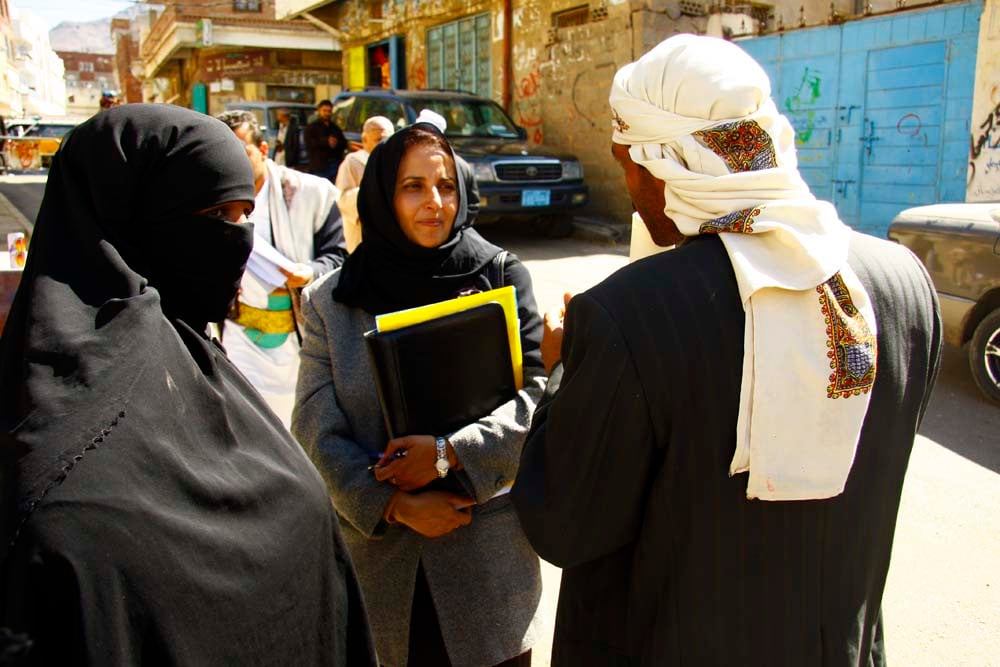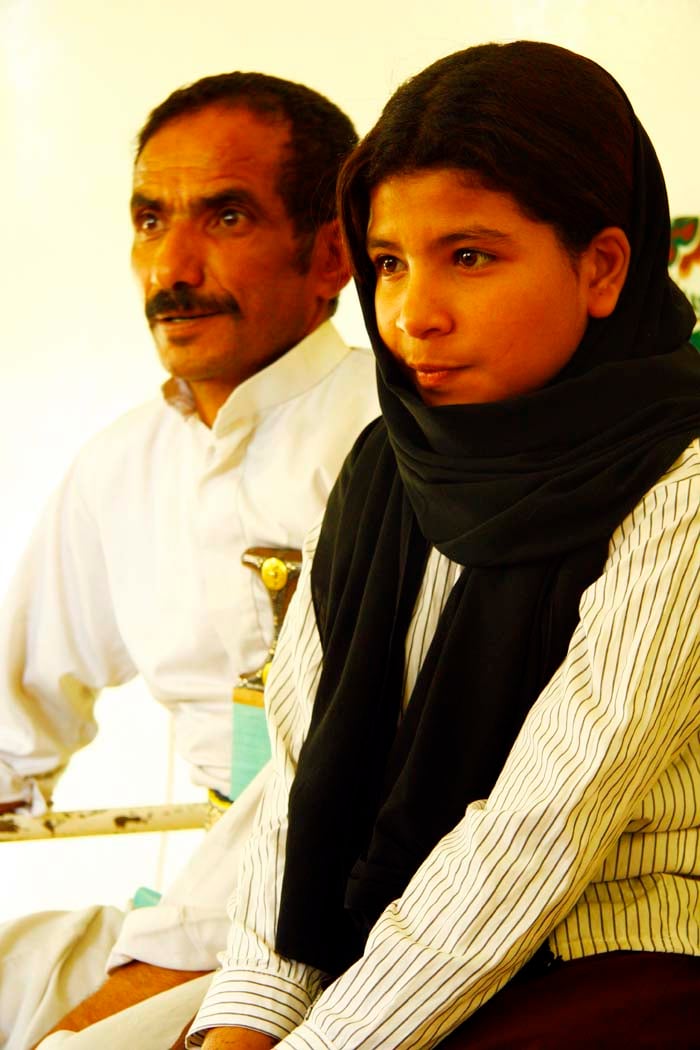It was every little girl’s dream - she was to get a new dress, jewellery, sweets and a party for all her friends.
What 10-year-old Aisha* did not know was that after the wedding party she would have to leave school, move to a village far from her parents’ home, cook and clean all day, and have sex with her older husband.
“He took out a special sheet and laid me down on it,” Aisha told IRIN, wringing her small plump hands. “After it, I started bleeding. It was so painful that I was crying and shouting, and since then I have seen him as death.”
After a week of fighting off her husband every night, Aisha’s father was called. He had received 200,000 Yemeni Rial (US$1,000) for his daughter in `shart’, a Yemeni dowry, which he could not pay back.
“My Dad made a cup of tea and put some pills in it, which he gave me. The pills made me feel dizzy,” said Aisha. “My Dad told me to sleep with my husband, or he would kill me, but I refused.”
Instead Aisha broke a glass bottle over her head in a desperate attempt to stay awake. “My Dad hit me badly. I was bleeding from my mouth and nose,” she said.
After spending a few months in her husband’s home, where she said he would regularly drug her and beat her, Aisha managed to escape. Now, two years later, aged 12, she is unable to divorce him.

No child protection
A bill passed in parliament in February 2009 setting the minimum age for marriage at 17 was rejected by the Islamic Sharia Codification Committee which said it was un-Islamic, according to local women’s rights organizations.
So, for now, there is no law protecting children against early marriages in Yemen.
”I don’t call it marriage, but rape,” said Shada Mohammed Nasser, a lawyer at the High Court in Sanaa. She has represented several child bride divorce cases in court, but admits she has lost most of them. Only a handful of child brides have successfully managed to divorce their husbands.
Listen to an interview with lawyer Shada Mohammed Nasser
“The law on marriage stipulates that a girl should not sleep with her husband until she is mature,” said Nasser, which according to the law is the age of 15. “But the law is not enforced.”
A girl can be married at just nine, but cannot legally seek a divorce until she is 15 or older. The money paid by the husband for his “wife” is a further obstacle to divorce, while the case can only be heard in a court in the governorate where the marriage took place.
“Usually the marriage will have been signed in the husband’s governorate and the judges may look more favourably on their own kinsmen,” said Nasser. “Many judges are governed by arcane views on women.”
Just under half of Yemeni girls, 48 percent, are married before they turn 18, according to the Washington DC-based International Centre for Research on Women (ICRW). This is classified as underage, according to the UN Convention on the Rights of the Child.
In some governorates as many as half of all girls under the age of 15 are married, according to an unpublished study from 2007 on early marriage by Sanaa University’s Gender Development Research and Study Centre.
Yemen has signed the Convention on the Rights of the Child and the Convention on the Elimination of Discrimination against Women (CEDAW).

A glimmer of hope?
"The greatest problem facing Yemeni women today is child marriages," said Wafa Ahmad Ali from the Yemeni Women’s Union, which has long campaigned for a raise in the minimum age of marriage.
"These early marriages rob the girl of the right to a normal childhood and education. The girls are forced to have children before their bodies are fully grown instead of going to school and playing with other children," she said.
However, Minister for Human Rights Huda al-Ban told IRIN that President Saleh had recently agreed to put forward - for discussion in parliament in May - the bill with 17 as the minimum marrying age. “If the bill is successful it could be passed as a law in September,” she said.
While politicians wrangle in parliament, young girls like Aisha are caught up in a violent world of adults which they are too young to understand, let alone escape.
”These are our traditions,” said Aisha’s father. However, he admits that Aisha might have been too young for marriage. Though she now has a lawyer, Aisha cannot divorce until the two men who control her (her father and husband) agree on how much money each will receive.
What Aisha wants is clear: “I’d rather die than go back to him,” she said, wiping a tear from behind her veil.
(*not her real name)
asf/hm/ed/cb
This article was produced by IRIN News while it was part of the United Nations Office for the Coordination of Humanitarian Affairs. Please send queries on copyright or liability to the UN. For more information: https://shop.un.org/rights-permissions




